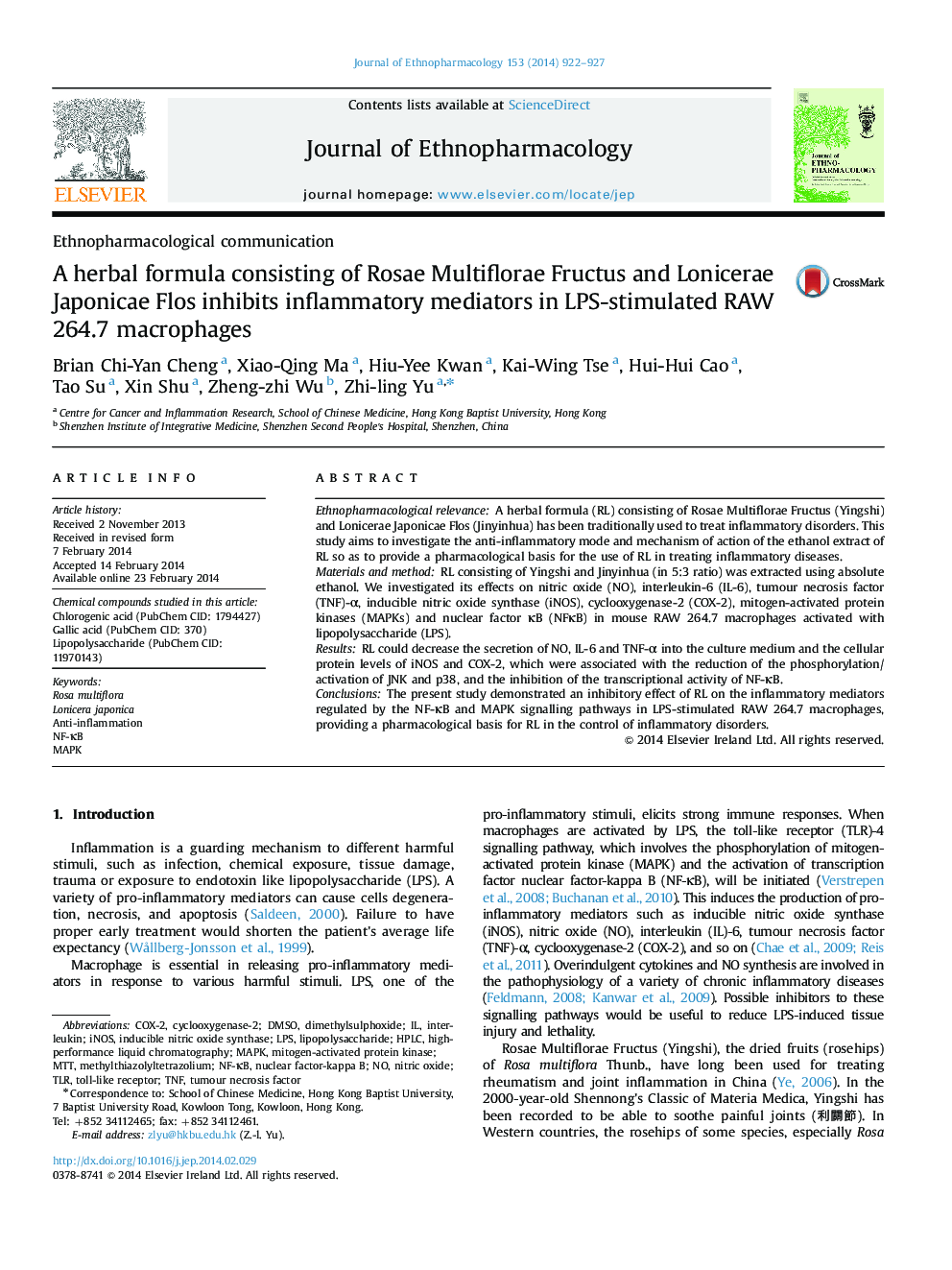| Article ID | Journal | Published Year | Pages | File Type |
|---|---|---|---|---|
| 2545124 | Journal of Ethnopharmacology | 2014 | 6 Pages |
Ethnopharmacological relevanceA herbal formula (RL) consisting of Rosae Multiflorae Fructus (Yingshi) and Lonicerae Japonicae Flos (Jinyinhua) has been traditionally used to treat inflammatory disorders. This study aims to investigate the anti-inflammatory mode and mechanism of action of the ethanol extract of RL so as to provide a pharmacological basis for the use of RL in treating inflammatory diseases.Materials and methodRL consisting of Yingshi and Jinyinhua (in 5:3 ratio) was extracted using absolute ethanol. We investigated its effects on nitric oxide (NO), interleukin-6 (IL-6), tumour necrosis factor (TNF)-α, inducible nitric oxide synthase (iNOS), cyclooxygenase-2 (COX-2), mitogen-activated protein kinases (MAPKs) and nuclear factor κB (NFκB) in mouse RAW 264.7 macrophages activated with lipopolysaccharide (LPS).ResultsRL could decrease the secretion of NO, IL-6 and TNF-α into the culture medium and the cellular protein levels of iNOS and COX-2, which were associated with the reduction of the phosphorylation/activation of JNK and p38, and the inhibition of the transcriptional activity of NF-κB.ConclusionsThe present study demonstrated an inhibitory effect of RL on the inflammatory mediators regulated by the NF-κB and MAPK signalling pathways in LPS-stimulated RAW 264.7 macrophages, providing a pharmacological basis for RL in the control of inflammatory disorders.
Graphical abstractFigure optionsDownload full-size imageDownload high-quality image (156 K)Download as PowerPoint slide
